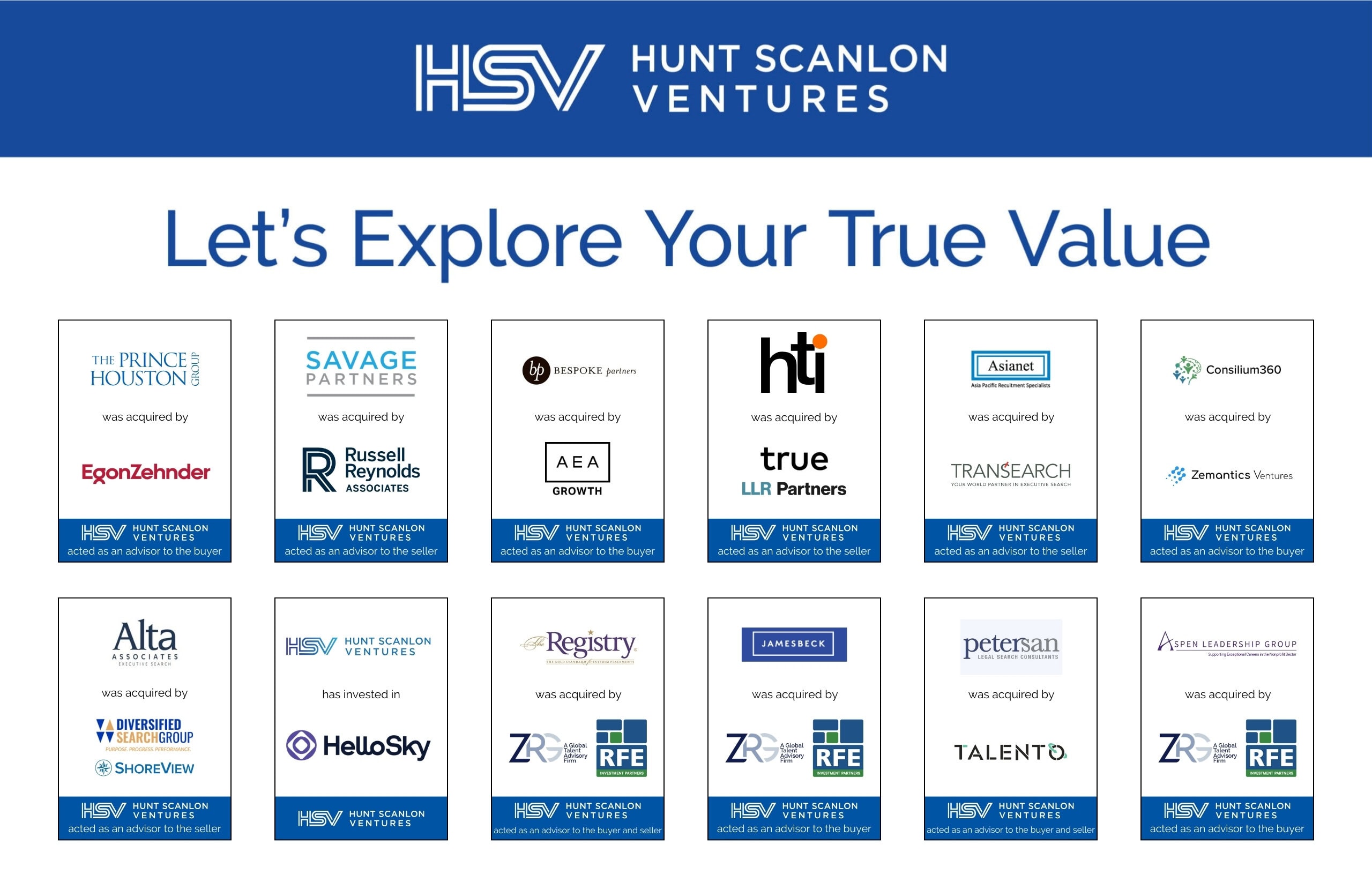PE dealmaking showed real strength in Q1, but economic and policy headwinds are combining forces to reshape the outlook for the rest of the year. Evan Berta, an associate at Hunt Scanlon Ventures, breaks down what the early data shows – and reveals what smart firms are thinking about talent strategy in a cautious, but competitive, market.
According to PitchBook’s Q1 2025 U.S. PE Breakdown Report, private equity entered the year with positive momentum. Deal activity totaled 2,263 transactions worth $259.7 billion, representing an 11.8% increase in volume and 36.1% increase in value year over year.
Much of the quarter’s value was driven by large take-privates, notably Sycamore Partners’ $23.7 billion acquisition of Walgreens Boots Alliance, the largest take-private in over two years. That deal alone made up 9.1% of total deal value in Q1.
Still, the PitchBook report signals that the favorable start to 2025 may not last. As PitchBook writes, “early signals suggest the macroeconomic landscape is shifting.”
Stalling Activity
According to the report, the private equity market is facing several emerging challenges. “Rising consumer and business loan delinquencies, potentially $1 trillion in federal spending cuts, and the implementation of new tariffs are all converging to create an atmosphere of uncertainty that could stall activity in the quarters ahead.”
This cautious sentiment is also backed by external surveys. CNBC’s CFO Council found that “60% of CFOs expect a recession in the second half of 2025, a sharp increase from just 7% last quarter.”
Talent Implication
Organizations are recalibrating their growth plans in real time. According to Evan Berta, an associate at Hunt Scanlon Ventures: “The first quarter was active, but we’re seeing hiring cycles lengthen already. With dealmakers watching the Fed and geopolitical risk closely, we expect companies to be more deliberate with headcount planning in Q2 and beyond.” Case in point, he said, is that a number of organizations are beginning to restrict budgets and freeze travel. “These are just some of the early signs of what’s to come,” he noted.
“60% of CFOs expect a recession in the second half of 2025, a sharp increase from just 7% last quarter.”
Help Wanted: Integration Leaders
In Q1, add-ons continued to lead buyout activity. “Add-on transactions represented 74.9% of all buyout activities in Q1 2025,” according to PitchBook’s report. This marks a 150-basis-point increase over the 2024 average and reflects continued sponsor reliance on consolidation strategies amid tighter credit conditions.
Take-privates also surged. PitchBook notes, “PE firms have notably increased their take-private activities, swiftly capitalizing on heightened volatility observed throughout Q1.”
Talent Implication
These strategies put a premium on experienced integration leaders. “We’re seeing demand pick up for CFOs and operators who’ve managed integrations and rollups,” said Mr. Berta. “Sponsors need leaders who can unify multi-entity structures and maintain operational stability.”
Growth Equity and Carveouts Surge
Growth equity continues to expand its share. “The strategy made up 24.5% of all PE deals in Q1, well above the five-year average of 19.2%,” according to PitchBook. It also overtook platform LBOs for deal count, a trend that began in 2023 and has held steady since.
Carveouts were also strong in Q1, representing 9.8% of buyout deals. Notable transactions included Blackstone’s $5.7 billion acquisition of Safe Harbor Marinas and Brookfield’s $1.7 billion purchase of National Grid’s US renewables business.
Talent Implication
These deals often require rebuilding infrastructure from scratch. “Carveouts come with complexity,” said Mr. Berta. “Talent leaders need to be brought in early. These aren’t plug-and-play integrations; you need a plan for culture, leadership, and systems from day one,” he added.
Tech and Healthcare Stay Resilient
Technology accounted for 18.3% of deal count and 24% of total deal value in Q1. The largest transaction was the $12 billion investment in Aligned Data Centers, driven by AI and cloud growth trends.
“A number of organizations are beginning to restrict budgets and freeze travel – just some of the early signs of what’s to come.”
Healthcare deals reached $25 billion in value across 278 deals, with major transactions including New Mountain Capital’s $1.5 billion acquisition of Access Healthcare and Blackstone’s $3.1 billion exit from Anthos Therapeutics.
Talent Implication
Scaling in these sectors demands specialized leadership. “We’re seeing strong demand for CTOs, digital chiefs, and revenue officers who know how to scale in regulated sectors,” Mr. Berta said. “In both tech and healthcare, the right leadership team makes or breaks the return story.”
Exits Rebound, But Inventory Builds
Exit activity totaled $186.6 billion across 402 exits, a 44.9% increase from Q4. However, PitchBook warns: “While the rebound in exit value is encouraging, significant acceleration is needed to make up for lost time.”
The backlog is considerable. PitchBook reports, “The U.S. PE company inventory swelled to 12,379 companies through Q1 2025. This translates to a seven-to eight-year inventory at the observed pace of exits in 2024 or the annualized pace of exits in Q1 2025.”
Talent Implication
Exit prep is becoming a continuous function. “Exit readiness is now a year-round mindset,” noted Mr. Berta. “Operators who know how to prepare for diligence, whether it ends in IPO or a strategic sale, are extremely valuable right now.”
“Organizations are being more selective in how they deploy, and that scrutiny trickles into hiring; teams want people who understand how to do more with less, and can show clear ROI on human capital.”
Fundraising Slows, Megafunds Persist
Fundraising declined to $56.7 billion across 79 funds, down from $76.8 billion in Q1 2024. Yet megafunds remained strong, with Insight Partners, PSG, and Blackstone closing $21.6 billion combined.
Middle-market managers accounted for “60.8% of the total capital raised,” PitchBook says, outperforming the historical five-year average.
Talent Implication
As fundraising gets harder, companies are tightening the belt on hiring. “Organizations are being more selective in how they deploy,” Mr. Berta said, “and that scrutiny trickles into hiring; teams want people who understand how to do more with less, and can show clear ROI on human capital.”
Valuations Flatten, Market Watches for Clarity
Valuations appear to be leveling off. PitchBook states that “trailing 12-month (TTM) multiples came down to 12.2x as Q1 buyout multiples trended lower, but they remain well above the pre-pandemic levels.”
The report’s broader takeaway: “The Q1 trajectory now paints a more nuanced picture.” That sentiment encapsulates the tone heading into the second half of the year: steady, but not guaranteed.
For dealmakers and talent leaders alike, this is a year where agility and patience will matter more than raw capital.
Article By

Evan Berta
Evan Berta is Editor-in-Chief of ExitUp, the investment blog from Hunt Scanlon Ventures designed for professionals across the human capital M&A sector. Evan serves as an Associate for Hunt Scanlon Ventures, specializing in data analysis, market mapping, and target list preparation.






